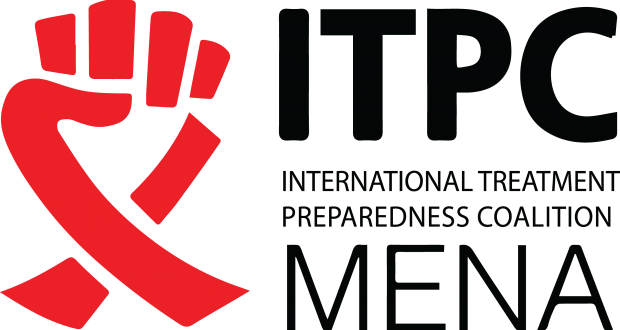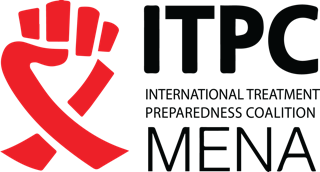
Call for Consultant: Acceptance Study of New Generation Long-Acting ARVs Among PLWHIV in the MENA Region
Terms of Reference (ToR) for Consultation
Demand Creation for New Generation ARVs – Acceptance Study Among PLWHIV
1. Context and Justification
The Middle East and North Africa (MENA) region faces a growing HIV epidemic, characterized by increasing uncertainties regarding its incidence and consequences. Data indicate that AIDS-related deaths surged by 66% between 2005 and 2013, emphasizing the urgent need for effective measures. Despite a relatively low prevalence rate (0.1%), social and cultural factors significantly obstruct access to essential services.
New HIV infections in MENA have increased by 116% from 2010 to 2023. In Egypt alone, rates surged by an alarming 609% during this period. With 22,962 new HIV infections recorded in 2023—representing 1.77% of global cases—the region is facing a serious HIV prevention crisis. The cost of inaction is high, and failure to address this situation could escalate into a generalized epidemic.
Currently, MENA records the lowest global coverage rate for antiretroviral treatments (ARVs), at just 17%. This highlights the critical necessity for studies focusing on the acceptance of new ARVs, particularly long-acting formulations, to overcome these barriers.
ITPC-MENA, MENA Community, and MENAPUD have played a pivotal role in raising awareness and educating people living with HIV (PLWHIV) about their rights and available treatments. These initiatives enhance access to treatment information in Arabic, train local organizations in treatment literacy, and advocate against barriers faced by key populations. Concurrently, ITPC-MENA and MENA Community actively mobilize local communities, establish community observatories, and influence national strategies through advocacy actions, as seen in programs like FORSS, which aims to improve healthcare access across multiple countries.
2. Study Objectives
Main Objective:
Assess the preferences and perceptions of PLWHIV regarding new ARVs, especially long-acting options, to inform targeted educational campaigns that promote acceptance and uptake.
Specific Objectives:
- Identify Concerns and Needs: Explore the apprehensions of PLWHIV regarding the use of long-acting ARVs.
- Develop Recommendations: Create actionable strategies for effective awareness campaigns based on research findings.
- Establish an Evidence Base for Advocacy: Generate robust data to empower advocacy efforts aimed at decision-makers and healthcare providers.
3. Methodology
3.1 Study Design
This study will adopt a mixed-methods approach, integrating qualitative and quantitative methods to capture a comprehensive view of PLWHIV perceptions.
3.2 Target Population
Participants will include a diverse group of men and women living with HIV in the MENA region, ensuring representation across various demographics, including age, gender, socio-economic status, and treatment duration.
3.3 Data Collection
- Surveys: Utilize online and face-to-face surveys to gather quantitative data on attitudes toward injectable ARVs.
- Interviews and Focus Groups: Conduct interviews and online focus group discussions (webinars) to delve deeply into personal experiences and expectations concerning ARV usage.
3.4 Data Analysis
- Qualitative Analysis: Use thematic analysis to identify key themes emerging from interviews and discussions.
- Quantitative Analysis: Employ descriptive and inferential statistics to elucidate survey results and highlight preferences among PLWHIV.
4. Expected Outcomes
- Comprehensive Report: A detailed analysis of preferences, concerns, and perceptions surrounding injectable ARVs.
- Practical Recommendations: Tactical suggestions for awareness and advocacy initiatives, grounded in empirical evidence.
- Robust Evidence for Advocacy: Assembled data to bolster advocacy endeavors, ensuring alignment with the needs of PLWHIV.
5. Stakeholders and Roles
5.1 ITPC-MENA
Responsible for overall project coordination, resource management, and stakeholder communications.
5.2 MENA Community
Facilitates the participation of PLWHIV and supports the logistics of data collection efforts.
5.3 Love Alliance & GNP+
Provide financial backing for the study’s implementation and contribute expertise in health advocacy and policy formulation.
6. Timeline
- Study Duration: 20 days in total.
- Planning and Recruitment: 1 month
- Data Collection: 10 days
- Data Analysis: 5 days
- Report Writing and Dissemination: 5 days
7. Budget
7.1 Cost Breakdown
- Personnel Costs, Data Collection Expenses, Analysis, and Reporting
- research staff and data collectors.
8. Monitoring and Evaluation
A management committee will oversee the study’s progress, conducting regular reviews and ensuring all stakeholders are updated regarding advancements. Continuous feedback will be solicited at each phase to refine strategies and maintain high-quality outcomes.
This detailed Terms of Reference outlines the framework for a comprehensive inquiry into the acceptance of new generation ARVs among PLWHIV in the MENA region. It emphasizes a rigorous methodology and actionable outcomes capable of significantly impacting healthcare strategies in the area.
Please submit your applications to Zakaria.bahtout@itpcmena.org, with copies sent to zayd.marrakchi@itpcmena.org and tariqalaoui@mena-community.org.
Submission deadline: April 30, 2024, at 12:00 PM (GMT+1) Morocco time.









